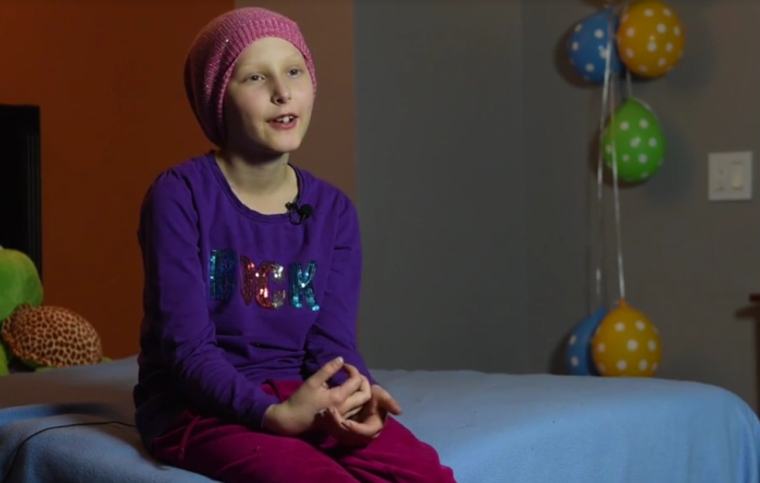Bored child uses robot to get to school

POOLESVILLE, Md. (Christian Examiner) – With the help of a robot, essentially a tablet computer on a remote-controlled stick with wheels, Peyton Walton can continue to attend her Maryland elementary school from the hospital in New York where she is receiving radiation treatment for a rare liver cancer.
"I really like math and science, so I just like being there and learning what they have to teach me," Peyton told the Washington Post.
"If sitting next to a robot in fifth grade or sixth grade can inspire one child to find a cure to cancer, it'll be worth it."
The robot, nicknamed PAVS for "Peyton's Awesome Virtual Self," represents the future of technology in the classroom and an opportunity for the 10-year-old to continue attending school even though she is living in a hospital in another state.
It also provides a benefit for students physically attending the class, says Sharon Zgoda, one of Peyton's teachers at Poolesville Elementary, and a cancer survivor herself. "It's a win-win for empathy in the classroom," she said.
"Cancer obliterates a child's control," Lynn Schaeber, Petyon's mother, said. "Not knowing the length of what her life would be, I wanted every moment to be as full and normal as possible."
Schaeber aggressively pursued the remote technology option, which has appeared to be incorporated nearly seamlessly into the classroom.
Peyton's Awesome Virtual Self has been welcomed by teachers, students, doctors, and Peyton herself, who said she has little trouble using the technology.
"We really are just beginning, and we are learning a lot," Kara Trenkamp, the school district's technology director, told the Washington Post about the pilot program with Peyton. "The initial start has been very positive." Other districts have shown interest in implementing a similar option for children.
Petyon has her physical school materials at a desk in her hospital room and works with her tablet propped up against the wall so she can interact with the teacher, see the board, and work in groups with other students. The fifth grader usually wears one of her knit caps and is expressive and reactive to the virtual classroom.
Peyton's classmates have been supportive of the venture. "It's really cool," said Tilly Gaughan of the robot. Tilly added, "She'd probably get a little bored in the hospital and get a little sad not seeing her friends."
Her mother thinks the endeavor is worthwhile not only to keep Peyton connected to her peers but also to inspire technology use for cancer awareness. "If sitting next to a robot in fifth grade or sixth grade can inspire one child to find a cure to cancer," Schaeber said, choked with emotion, "it'll be worth it."